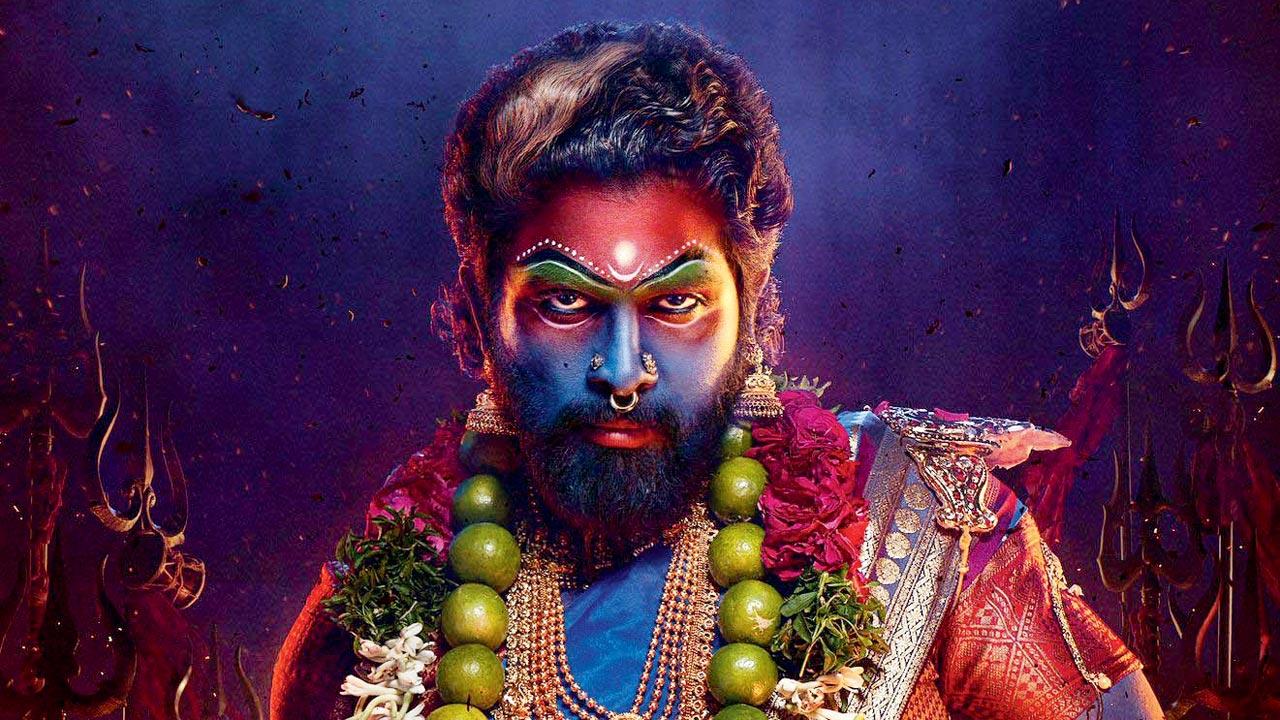Ahead of the release of Pushpa 2: The Rule, Devi Sri Prasad asserts that there is divine intervention when he sits down to create new music

Devi Sri Prasad
It may have been three years since the release of Pushpa: The Rise, however, tracks like Srivali, and Saami saami are still fresh in people’s minds. Devi Sri Prasad, the composer who arguably put the spotlight on south Indian music with Oo antava, acknowledges the popularity of the score of part one, but says he doesn’t carry the weight of his success as he gears up to present his setlist for Pushpa 2: The Rule. In this interview, he discusses creating the music for the film’s upcoming edition, which is set to be presented in six languages.
ADVERTISEMENT
Edited excerpts of the interview.
Was your approach towards this film different given that the music of the last edition gained so much attention?
I find that I am blessed in that I am not consumed by pressure. When you work without being stressed, you can deliver your best work. I treat each movie as a separate entity, because to cater to any film’s needs, you need to have a clear mind. I feel like an instrument of music rather than a composer of music. When I am inspired by a narration, I think of all the elements I can include to decipher what the best music for the situation could be. That’s how music flows through me, and I am grateful for it.
[In this edition], the story continues from where part one ended. It’s not like a franchise in which the actors are retained but the characters are different. Here, we are continuing with the same characters. So, you’ll notice progress in the music. Even then, we tried to make something different from the past soundtrack.
Also, this time, we are making the film in Bengali, so we have to go through the exercise in six languages. It took me more than two months to make the songs, since I had to sit with the lyricists of each language to make it.
All the writers flew to Chennai to [work with me] in my studio. It was like a kavi sammelan. We had a great time talking about literature, lyrics, and old and new music.

You had previously mentioned that the kind of songs from Pushpa that became famous took you by surprise. What did you learn from that development?
Any creator will always create something with the hope that people will love it. An artiste creates art so that it appeals to people. Success, today, is defined as a song that reaches many people. Once it does, we need to see if it is being loved. We always work in this imaginary world where we assume our work will be appreciated. But, there may always be songs that do not enjoy the kind of reach that we desire. Other songs, however, have a wider reach, and there is always a balance that is created. So, I don’t analyse a soundtrack too much. I feel it takes away from the charm of working on new music. Create music, and then leave it to the audience. Sometimes, a song works in different instances. For example, I created a song called Bang bang for a film. I also choreographed and directed it. That song has suddenly started going viral now across India, China, Japan and Dubai. So, everything has its own journey. Sometimes, you don’t know the result, and you’ll have to wait.
You’re also active as an independent artiste. What’s in the pipeline?
I am doing it to encourage other musicians from the south, because the independent music scene is not [thriving] there. It’s only picking up now. This year, there are big collaborations [in the pipeline].
Why do you think the indie scene has not flourished in the south Indian market?
In the north, every occasion warrants a huge celebration, and music is a major part of it. Their culture is like that. Also, independent music has been thriving in the north for a long time. Punjabi music is celebrated across the world and is consumed by individuals who speak Hindi, Gujarati and Marathi too. It’s popular even in south India. The penetration of the language determines its success. I think it [south Indian music] will also have that reach [in due course of time].
 Subscribe today by clicking the link and stay updated with the latest news!" Click here!
Subscribe today by clicking the link and stay updated with the latest news!" Click here!







